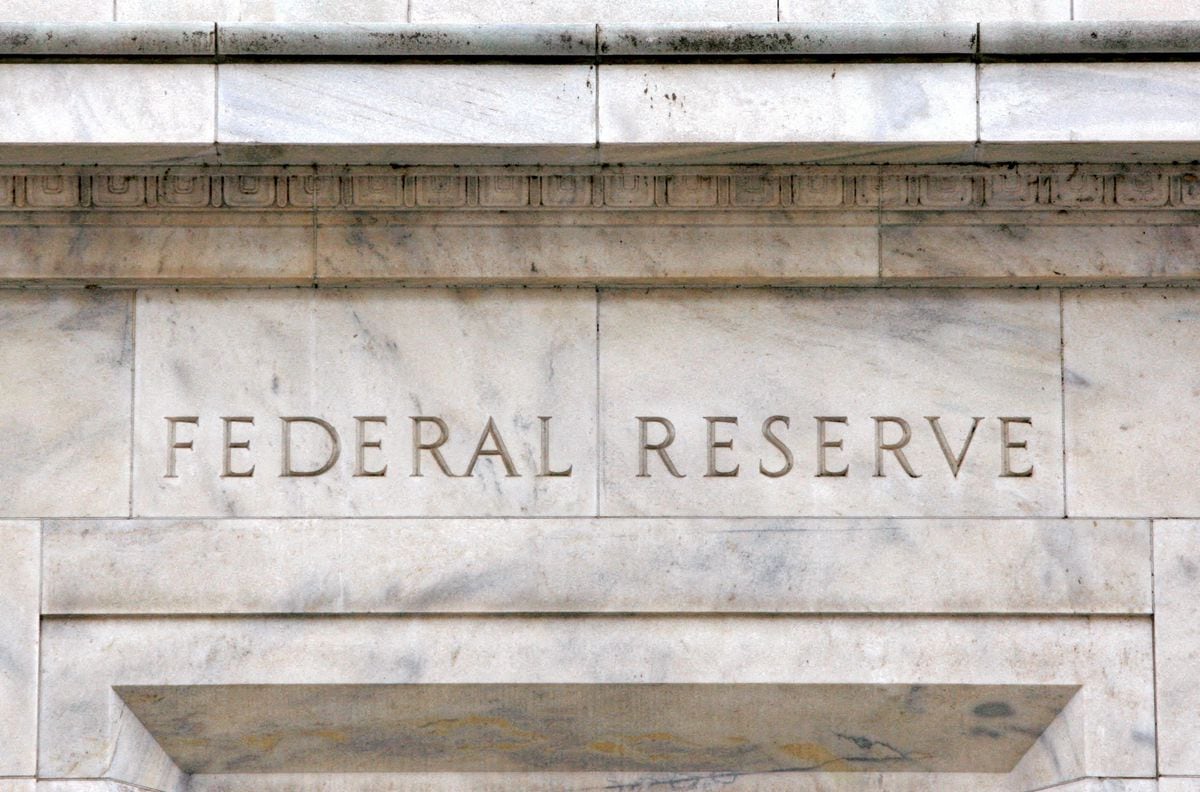There are graphics that accurately represent fear.
The request for funds by the banks in the Federal Reserve discount window portrays the panic of a flight of deposits that bankers have suffered after the fall of Silicon Valley Bank and Signature Bank.
In the week closed this Wednesday (the reference day of the published data), the banks asked the Federal Reserve for an average of 117,000 million dollars a day (about 109,000 million euros at the current exchange rate).
It is a figure that almost triples the maximum of the outbreak of the pandemic and even exceeds the record of 112,000 million set during the financial crisis of 2008.
The entities that request money through the discount window are not known until two years have passed, since the use of that window has been stigmatized.
It is considered that entities that have liquidity problems go to it.
To obtain Federal Reserve loans, you must provide guarantees as collateral.
The daily maximum record was reached the previous Wednesday, with some 152,900 million dollars on Wednesday the 15th, but the average for the week closed on that day was about 85,000 million.
Now, the number with which the week ends has been reduced, but the average has shot up to that new record.
The Federal Reserve has made the requirements to go to the discount window more flexible, but in addition the entities are using the new liquidity facility launched by the central bank in a preventive way.
This new mechanism, the Term Bank Financing Program (BTFP), allows banks to obtain loans of up to one year guaranteed by State bonds that the entities have in their portfolio.
These titles are valued as collateral at their full face value and not at the market value, which is lower after the aggressive rises in interest rates in the last year.
Those bond portfolio losses were one of the triggers for Silicon Valley Bank's downfall.
In the last week, entities have borrowed an average of 34,600 million through this new system, which barely reached an average balance of 2,400 million the previous week.
The banks, therefore, are using the two windows in parallel.
The figures come as authorities are still trying to calm financial markets and bank depositors after the recent bankruptcy of Silicon Valley Bank and Signature Bank in the United States and the near collapse of banking giant Credit Suisse before its purchase by its competitor UBS with the mediation of the Government.
In the United States, the contagion has hit First Republic Bank and other medium-sized banks and in Europe, it has especially affected Deutsche Bank this Friday, which has collapsed on the stock market.
supervisors meeting
In this environment, the US Treasury Secretary, Janet Yellen, has summoned the country's financial authorities this Friday to a previously unannounced meeting of the Financial Stability Oversight Council (FSOC).
The Secretary of the Treasury presides over that Council, which also includes the president of the Federal Reserve, Jerome Powell;
the Securities and Exchange Commission (SEC);
that of the deposit guarantee fund, the FDIC, and other authorities.
The meeting is being held behind closed doors and it is unclear if the body would issue a statement after it.
The Council, which meets at least once a quarter, serves as a coordination forum, but in itself does not have relevant powers to take immediate action.
Both the president of the United States, Joe Biden, and Yellen and Powell have reiterated in the last two weeks that the financial system of the United States is solid and that the entities are well capitalized and in good health.
Yellen has also said that the treasury is willing to support more entities if they require it.
That has not finished calming the nerves in the markets.
The tightening of monetary conditions is equivalent to a rise in interest rates, in addition to those that have already occurred.
This Friday is the deadline for interested parties to submit offers for Silicon Valley Bank, which the deposit guarantee fund (the FDIC) has not yet been able to sell.
It did get rid of Signature Bank (or a good part of it) in an operation in which Flagstar was left with a portfolio of assets and liabilities without having to pay for it.
The entity received discounted assets of $2.7 billion.
Follow all the information on
Economy
and
Business
on
and
, or in our
weekly newsletter












